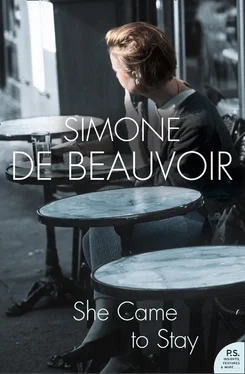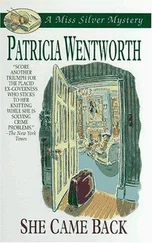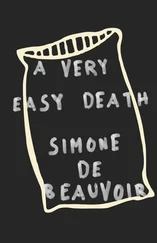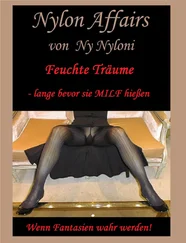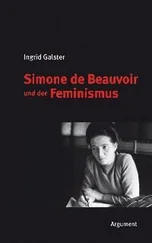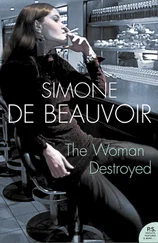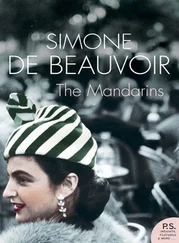SIMONE DE BEAUVOIR
She Came to Stay
Translated by Yvonne Moyse
and Roger Senhouse

HarperPress
An imprint of HarperCollins Publishers 1 London Bridge Street London SE1 9GF
http://www.harpercollins.co.uk
This edition published by Harper Perennial 2006
Previously published in paperback by Flamingo 1984 and by Fontana 1975
This translation first published jointly by Seeker & Warburg
and Lindsay Drummond 1949
First published in France by Editions Gallimard under the title L’Invitée 1943
Copyright © Editions Gallimard 1943
PS section copyright © Louise Tucker 2006, except ‘The Pain of Freedom’ by
Fay Weldon © Fay Weldon 2006
PS TMis a trademark of HarperCollins Pubishers Ltd
A catalogue record for this book
is available from the British Library
All rights reserved under International and Pan-American Copyright Conventions. By payment of the required fees, you have been granted the nonexclusive, nontransferable right to access and read the text of this e-book on-screen. No part of this text may be reproduced, transmitted, downloaded, decompiled, reverse engineered, or stored in or introduced into any information storage and retrieval system, in any form or by any means, whether electronic or mechanical, now known or hereinafter invented, without the express written permission of HarperCollins e-books.
Ebook Edition © MAY 2018 2012 ISBN 9780007384938
Version: 2018-05-16
HarperCollinsPublishers has made every reasonable effort to ensure that any picture content and written content in this ebook has been included or removed in accordance with the contractual and technological constraints in operation at the time of publication.
To Olga Kosakievicz
Cover
Title Page
Copyright
Dedication
PART ONE
Chapter One
Chapter Two
Chapter Three
Chapter Four
Chapter Five
Chapter Six
Chapter Seven
Chapter Eight
PART TWO
Chapter One
Chapter Two
Chapter Three
Chapter Four
Chapter Five
Chapter Six
Chapter Seven
Chapter Eight
Chapter Nine
Chapter Ten
P.S. Ideas, insights & features …
About the Author
Finding a Voice by Louise Tucker
Life at a Glance
About the Book
The Pain of Freedom by Fay Weldon
Read On
Have You Read?
If You Loved This, You Might Like …
Find Out More
About the Author
By the Same Author
About the Publisher
PART ONE
Françoise raised her eyes. Gerbert’s fingers were flicking about over the keyboard of his typewriter, and he was glaring at his copy of the manuscript; he looked exhausted. Françoise herself was sleepy; but there was something intimate about her own weariness, something cosy. The black rings under Gerbert’s eyes worried her, his face was haggard and tense; he almost looked his full twenty years.
‘Don’t you think we ought to stop?’ she asked.
‘No, I’m all right,’ said Gerbert.
‘Anyway, I’ve only one more scene to revise,’ said Françoise.
She turned over a page. Two o’clock had struck a short time ago. Usually, at this hour, there was not a living soul left in the theatre: tonight there was life in it. The typewriter was clicking, the lamp threw a rosy glow over the papers … ‘And I am here, my heart is beating. Tonight the theatre has a heart and it is beating.’
‘I like working at night,’ she said.
‘Yes,’ said Gerbert, ‘it’s quiet.’
He yawned. The ashtray was filled with the stub-ends of Virginian cigarettes; two glasses and an empty bottle stood on a small table. Françoise looked at the walls of her little office: the rosy atmosphere was radiant with human warmth and light. Outside was the theatre, deprived of all human life and in darkness, with its deserted corridors circling a great hollow shell. Françoise put down her fountain pen.
‘Wouldn’t you like another drink?’ she asked.
‘I wouldn’t say no,’ said Gerbert.
‘I’ll go and get another bottle from Pierre’s dressing-room.’
She went out of the office. It was not that she had any particular desire for whisky; it was the dark corridors which were the attraction. When she was not there, the smell of dust, the half-light, and their forlorn solitude did not exist for anyone; they did not exist at all. And now she was there. The red of the carpet gleamed through the darkness like a timid night-light. She exercised that power: her presence snatched things from their unconsciousness; she gave them their colour, their smell. She went down one floor and pushed open the door into the auditorium. It was as if she had been entrusted with a mission: she had to bring to life this forsaken theatre now in semi-darkness. The safety-curtain was down; the walls smelt of fresh paint; the red plush seats were aligned in their rows, motionless but expectant. A moment ago they had been aware of nothing, but now she was there and their arms were outstretched. They were watching the stage hidden behind the safety-curtain: they were calling for Pierre, for the footlights and for an enraptured audience. She would have had to remain there for ever in order to perpetuate this solitude and this expectancy. But she would have had to be elsewhere as well: in the props-room, in the dressing-rooms, in the foyer; she would have had to be everywhere at the same time. She went across the proscenium and stepped up on to the stage. She opened the door to the green-room. She went on down into the yard where old stage sets lay mouldering. She alone evoked the significance of these abandoned places, of these slumbering things. She was there and they belonged to her. The world belonged to her.
She went through the small iron stage-door and out into the middle of the formal garden. The houses all round the square were sleeping. The theatre was sleeping, except for a rosy glow from a single window. She sat down on a bench. The sky was glossy black above the chestnut trees: she might well have been in the heart of some small provincial town. At this moment she did not in the least regret that Pierre was not beside her: there were some joys she could not know when he was with her; all the joys of solitude. They had been lost to her for eight years, and at times she almost felt a pang of regret on their account.
She leaned back against the hard wood of the bench. A quick step echoed on the asphalt of the pavement; a motor lorry rumbled along the avenue. There was nothing but this passing sound, the sky, the quivering foliage of the trees, and the one rose-coloured window in a black façade. There was no Françoise any longer; no one existed any longer, anywhere.
Françoise jumped to her feet. It was strange to become a woman once more, a woman who must hurry because pressing work awaits her, with the present moment but one in her life like all the others. She put her hand on the door-knob, then turned back with a qualm of conscience. This was desertion, an act of treason. The night would once more swallow the small provincial square; the rose-coloured window would gleam in vain; it would no longer shine for anyone. The sweetness of this hour would be lost for ever; so much sweetness lost to ali the earth. She crossed the yard and climbed the green wood steps. She had long since given up this kind of regret. Only her own life was real. She went into Pierre’s dressing-room and took the bottle of whisky from the cupboard. Then she hastened back upstairs to her office.
Читать дальше
